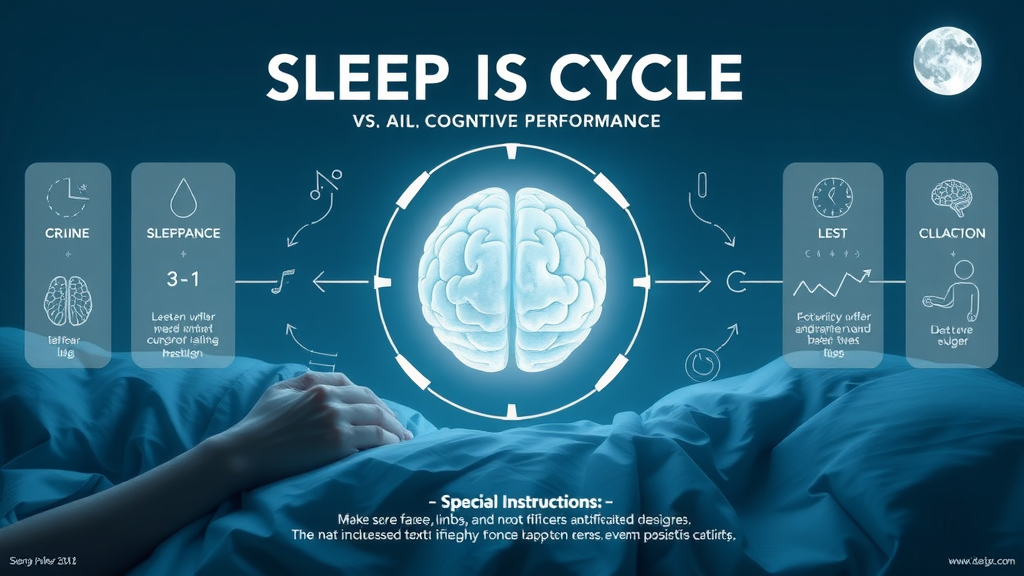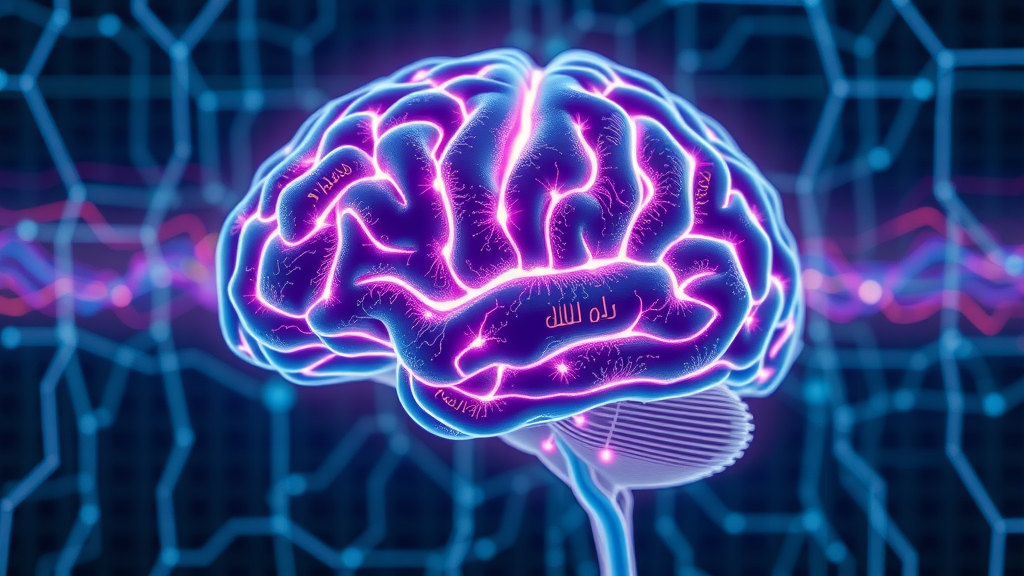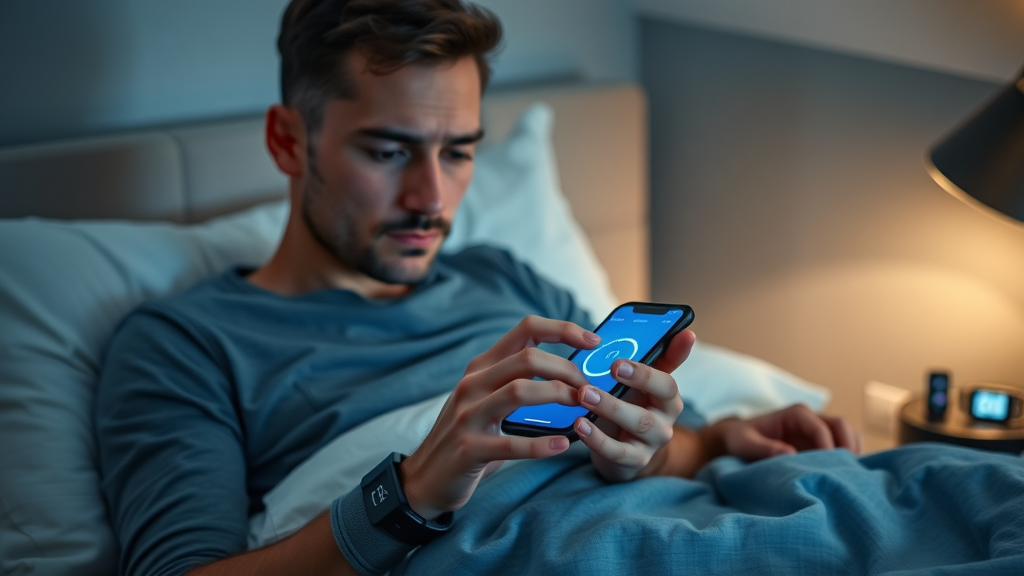"Did you know that chronic sleep deprivation can impair cognitive performance as much as being legally drunk? Understanding the intricate link between sleep and cognitive function is not just fascinating—it’s vital for daily life and long-term brain health."

Exploring the Impact of Sleep and Cognitive Function: Why This Relationship Matters
Understanding the relationship between sleep and cognitive function goes far beyond combating general tiredness—it's about protecting our capacity to think, learn, and make sound decisions every single day. Sleep affects how well we remember facts, solve problems, maintain focus, and even regulate our moods. With research showing striking parallels between the cognitive decline caused by sleep deprivation and that seen in intoxication, there’s no denying the high stakes involved.
Many of us undervalue just how crucial sleep is to our cognitive performance . Whether it’s pulling all-nighters or sacrificing rest for work, we often prioritize productivity at the expense of our brain’s true needs. Yet, studies show that even short sleep can result in slower reaction time , poorer decision-making, and lapses in working memory. By exploring exactly how sleep influences cognition—backed by the science of brain function , synaptic homeostasis , and more—we can take actionable steps to ensure sharpness and protect against cognitive decline .
- Gain insights into how sleep and cognitive function interact
- Discover surprising impacts of sleep deprivation on cognitive performance
- Learn practical steps for improving sleep quality and boosting cognitive function
- Understand current research and debates shaping our understanding of cognitive decline

The Science Behind Sleep and Cognitive Function: Foundations and Functional Insights
How Sleep Fuels Cognitive Performance: A Closer Look
The brain isn’t simply “off” while we sleep; in fact, it operates in highly organized stages that are crucial for cognitive function and overall cognitive performance . REM sleep and NREM sleep offer distinct benefits. For example, slow wave sleep is associated with memory consolidation, enhancing our ability to store and retrieve newly learned information. During these sleep stages, the prefrontal cortex and other brain regions actively process and file memories, support learning, and help regulate emotional responses.
Studies show brain activity during certain sleep states supports problem-solving and creative thinking. Processes such as synaptic homeostasis (the rebalancing of neural connections) clear out excess information, making way for new learning and helping to maintain optimal brain function. Without high-quality sleep, these processes falter, and our cognitive tests scores typically suffer. Sleep isn’t just restful; it’s foundational to high-level brain functioning.
Understanding Cognitive Functions Supported by Sleep
Quality sleep supports a wide array of cognitive functions such as attention, reasoning, working memory , and complex decision-making. During sleep, especially in REM and slow wave phases, the brain strengthens neural pathways, facilitating both declarative memory (facts, knowledge) and procedural memory (skills, tasks). This helps us recall information with ease and apply lessons learned to new situations.
In addition, sleep supports mental agility and emotional resilience. The frontal cortex , which is responsible for high-level thought and impulse control, undergoes a reset each night. This leaves us better prepared for the day ahead, improving our reaction time and information processing skills. Getting enough restorative shut-eye quite literally makes us smarter, more attentive, and better able to navigate complex environments.

Effects of Sleep Deprivation on Cognitive Function and Cognitive Performance
When we skimp on sleep, the effects of sleep deprivation quickly become apparent in our day-to-day activities. Simple tasks take longer, reaction times slow, and errors become more frequent. Studies show that sleep-deprived individuals experience impaired attention and increased forgetfulness. Critical brain regions such as the prefrontal cortex and hippocampus suffer, directly impacting memory consolidation and decision-making ability.
Prolonged sleep loss leads to more than just temporary cognitive sluggishness; over time, chronic deprivation can accelerate cognitive decline and increase the risk of long-term cognitive impairment . The brain’s ability to perform complex cognitive functions, process new information, and recall previously learned material becomes severely compromised. Prioritizing regular, quality sleep is thus essential for maintaining brain health and sharp cognitive performance .
Sleep Quality Versus Sleep Quantity: What's More Important for Cognitive Function?

How Sleep Loss and Poor Sleep Quality Trigger Cognitive Decline
It’s common to assume that simply increasing sleep hours will solve mental fatigue, but sleep quality is often the more decisive factor for healthy cognitive function . Disruptions during the night—such as frequent awakenings or shallow sleep—fragment crucial stages like REM sleep and slow wave sleep . The result is a lag in memory function , reduced problem-solving capacity, and a greater likelihood of errors during cognitive tasks, even when total sleep time appears adequate.
Longitudinal studies show that consistently poor sleep quality, rather than short duration alone, is more predictive of cognitive impairment and long-term cognitive decline . The ability of the brain’s frontal cortex to manage executive functions, like planning and impulse control, deteriorates rapidly with poor-quality sleep. Ultimately, sufficient hours of rest mean little if the sleep itself isn’t restorative.
| Factor | High Sleep Quantity, Poor Quality | Low Quantity, High Quality | High Quantity, High Quality |
|---|---|---|---|
| Memory Consolidation | Impaired | Moderate | Optimal |
| Attention Span | Shortened | Fair | Extended |
| Problem-Solving | Error-prone | Average | Efficient |
| Mood Stability | Unstable | Improved | Balanced |
"Consistent, high-quality sleep plays a more crucial role in sustaining sharp cognitive functions than simply increasing hours of shut-eye."
Sleep Deprivation: The Silent Saboteur of Cognitive Function

Short-Term Effects of Sleep Deprivation on Working Memory and Reaction Time
Acute sleep deprivation can impair working memory and slow reaction time after just one poor night’s rest. This reduction in immediate recall and thinking speed can have tangible consequences—especially for students, professionals, and anyone making rapid decisions. Research consistently finds that reaction times worsen dramatically and error rates skyrocket under sleep-poor conditions.
Brain regions like the prefrontal cortex and hippocampus are particularly vulnerable. These areas govern abstract reasoning, focus, and memory, meaning a single night of short sleep can cause lapses in logic, confusion, and misunderstanding. The immediate effects of sleep deprivation are most noticeable in situations that require quick thinking or adapting to new information.
Chronic Sleep Loss and Cognitive Impairment: Long-Term Consequences
The long-term effects of persistent sleep loss are even more concerning. Regularly missing out on restorative sleep gradually erodes cognitive functioning , resulting in increased forgetfulness, persistent sluggishness, and difficulty absorbing new concepts. Over time, such chronic shortages raise the risk for disorders like cognitive impairment and even Alzheimer’s disease.
Furthermore, mood disorders and anxiety often worsen with chronic sleep deprivation , creating a feedback loop that further damages brain function . The decline may be subtle at first, but with continued neglect, major deficits in attention, memory, and higher reasoning can develop—making strong, continuous sleep hygiene an absolute priority for long-term mental health.
- Increased forgetfulness
- Slower reaction time
- Decreased problem-solving skills
- Mood instability
- Poor attention span
Watch: Expert opinions: The risk of cognitive decline with chronic sleep deprivation
Mechanisms Linking Sleep and Cognitive Function: Scientific Perspectives
Synaptic Homeostasis: Clearing the Brain for Enhanced Cognitive Performance
The brain’s need for sleep is tied to a cemented scientific concept: synaptic homeostasis . This is the process by which our neural connections, or synapses, are pruned and optimized during deep sleep. Too many unrefined connections can clog up brain networks, making it difficult to process information efficiently. Slow wave sleep is especially critical for this cleansing process—removing metabolic waste and preparing the brain for another day of learning.
Without regular synaptic maintenance, brain regions like the prefrontal cortex become overloaded. The brain res (brain's resources) are depleted and memory consolidation weakens. By supporting synaptic homeostasis through healthy sleep habits, we can guarantee that our cognitive performance stays sharp from day to day.

Brain Plasticity: Facilitating Learning and Memory During Restful Sleep
Another key advantage of quality sleep is its ability to drive brain plasticity —the brain’s remarkable ability to form, reorganize, and strengthen neural connections. Deep, restorative rest provides a “reset” for neural circuits, laying the groundwork for learning new languages, mastering musical instruments, or just recalling daily events. This supports both declarative and procedural memory.
Thanks to REM sleep , we enhance both emotional and cognitive learning, with the hippocampus and surrounding brain regions playing critical roles. This is why people who consistently prioritize their rest often perform better on cognitive tests and show greater mental flexibility when approaching complex or novel tasks.
Recent Sleep Research on Cognitive Tests and Sleep Interventions
Multiple longitudinal sleep studies underscore the direct link between rest, cognitive performance , and intervention success. For example, controlled experiments have shown that individuals who benefit from targeted sleep interventions—such as optimizing sleep environment, practicing relaxation before bed, or using light therapy—see improvements on standardized cognitive tests . These enhancements appear across age groups and cognitive domains, including working memory, processing speed, and executive functions.
Furthermore, evidence from neuroscience suggests that interventions focusing on improving sleep quality can reverse some of the negative effects of sleep deprivation . When sleep health improves, so too does performance in the frontal cortex , the seat of reasoning, impulse control, and decision-making. This further confirms the powerful role sleep plays in mental sharpness.
| Sleep Stage | Key Processes Enhanced | Brain Regions Involved |
|---|---|---|
| REM Sleep | Memory Consolidation, Emotional Regulation, Problem Solving | Hippocampus, Prefrontal Cortex |
| Slow Wave Sleep (NREM) | Declarative Memory, Synaptic Homeostasis, Brain Recovery | Frontal Cortex, Parietal Regions |
| Light Sleep | General Restoration, Preparation for Deep Sleep | Whole Brain |
"REM sleep isn’t just for dreams—it’s crucial for consolidating memories and facilitating problem-solving."
Cognitive Decline and Sleep Disorders: What You Need to Know
Insomnia and Sleep Apnea: Pathways to Impaired Cognitive Function
Chronic sleep disorders like insomnia and sleep apnea present significant risks for cognitive impairment . Insomnia leads to persistent sleep deprivation that can erode memory, reduce attention span, and destabilize mood. Meanwhile, sleep apnea causes abrupt awakenings and reduced oxygen flow during sleep, severely impacting the brain regions responsible for cognitive functioning.
Studies show that patients with untreated sleep apnea are more likely to suffer from cognitive decline and display deficits in declarative memory , learning, and executive function. Addressing these disorders is thus not only critical for physical health but also for preserving mental sharpness throughout life.

Addressing Cognitive Impairment: Therapeutic Approaches and Evidence
Luckily, therapeutics for sleep-related cognitive impairment are proving more effective than ever. Cognitive behavioral therapy for insomnia (CBT-I) , for example, has strong evidence for improving both sleep quality and cognitive outcomes. Medical interventions like CPAP machines for sleep apnea can reclaim hours of restful sleep, directly boosting cognitive performance over time.
Importantly, lifestyle changes remain central to any strategy. Optimizing one’s sleep environment, limiting blue light exposure before bedtime, and adopting a winding-down ritual can yield measurable benefits in alertness and memory function. A holistic approach that combines lifestyle, behavioral, and medical interventions offers the best path for those facing persistent sleep disorders.
- Lifestyle modification
- Cognitive behavioral therapy
- Sleep environment optimization
- Medical interventions for underlying sleep disorders
Watch: Understanding sleep disorders and their effects on cognitive function
Personal Reflection: How Sleep Changed My Own Cognitive Performance

"Making sleep a priority transformed my productivity, memory, and overall cognitive function for the better."
On a personal note, I’ve witnessed firsthand how prioritizing healthy sleep can make a dramatic difference in one’s ability to think clearly, remember important details, and approach each day with renewed optimism. After years of burning the candle at both ends, committing to a consistent sleep schedule and investing in sleep quality turned my cognitive performance around. Tasks that once felt taxing have become manageable—and even enjoyable. My story echoes what scientific research proves: a well-rested brain is the ultimate productivity tool.
Current Debates in Sleep and Cognitive Function Research
Minimum Sleep Requirements for Optimal Cognitive Performance
One ongoing debate is just how much sleep is needed for optimal cognitive function . While most experts estimate adults require 7–9 hours per night, individual needs can vary considerably based on genetics, age, and lifestyle. The controversial question is whether these guidelines should shift based on recent sleep res emerging from longitudinal studies and cognitive test outcomes.
What remains clear is that both severely restricted and excessively long sleep can trigger cognitive decline . The key takeaway is to listen to your body: if you’re waking groggy and struggling with memory, it may be time to adjust habits or see a sleep professional.

Are Naps Effective in Combating Cognitive Decline and Sleep Loss?
Napping is increasingly touted as a tool for reversing sleep loss and reclaiming alertness. But research on the effects of naps is mixed. The consensus among sleep scientists is that short naps (20–30 minutes) can restore cognitive function and boost working memory , especially after a sleepless night. However, frequent, lengthy naps may disrupt normal sleep rhythms and undermine sleep quality over the long term.
For those struggling to get adequate nighttime rest, strategic daytime naps—when kept brief—offer a powerful means of reducing immediate effects of sleep deprivation and protecting against cognitive decline. The best approach is to view napping as a supplement, not a substitute, for regular restorative sleep.
Contradictory Findings: Can Oversleeping Impair Cognitive Function?
It might surprise some readers to learn that oversleeping —regularly clocking more than 9–10 hours a night—is also linked with poorer cognitive performance . Several al study and brain res point to heightened risks of cognitive decline in long sleepers, though the reasons remain unclear. Hypotheses include underlying health conditions, depression, or disrupted sleep architecture .
This contradiction highlights the need for ongoing sleep res : while insufficient sleep deprives the brain’s resources, too much may signal or contribute to cognitive issues of its own. Moderation and regularity—rather than extremes—continue to win out as the best path to cognitive well-being.
| Study Description | Sleep Amount | Key Cognitive Findings |
|---|---|---|
| Meta-analysis of Working Adults | 5–6 hours/night | Notable decline in memory, slower reaction time |
| Longitudinal Study, Seniors | 7–8 hours/night | Lowest risk of cognitive impairment |
| Population Survey | <5 or >9 hours/night | Increased risk for cognitive decline and mood issues |
How to Enhance Sleep and Boost Cognitive Function: Actionable Strategies
- Stick to a consistent sleep schedule
- Optimize your sleep environment
- Limit caffeine late in the day
- Engage in regular physical activity
- Practice relaxation techniques before bed
Evaluating Sleep Quality and Cognitive Function at Home: Self-Assessment Tools
Modern technology offers several ways to measure your own sleep quality and cognitive function . Keeping a sleep diary can help identify sleep patterns, wakefulness periods, and how day-to-day fluctuations align with your mental performance. Many self-assessment tools now ask about memory, mood, confusion, and general alertness—providing a valuable window into how your lifestyle affects your brain.
For those seeking a more data-driven approach, standardized cognitive tests and online reaction-time assessments can also highlight areas needing improvement. By regularly monitoring both sleep and cognitive outcomes, it’s easier to tailor new habits and track improvements over time.

Apps and Wearables for Monitoring Sleep and Cognitive Performance
The last decade has seen an explosion of innovative apps and wearables that allow users to monitor sleep architecture, time spent in REM and slow wave sleep , total sleep hours, and night-time awakenings. Many also include basic cognitive tests —such as memory games, attention challenges, and processing-speed drills—providing real-time feedback on how rest influences mental acuity.
By leveraging these tools, individuals can fine-tune their routines and spot negative trends before they become major issues. Ultimately, technology empowers us to take charge of both our sleep hygiene and our cognitive performance .
Watch: Guided routine: Evening habits that support sleep and cognitive function
Addressing Common Questions on Sleep and Cognitive Function
How does sleep affect cognitive function?
Sleep plays a pivotal role in supporting cognitive function by enabling memory consolidation, improving concentration and alertness, and facilitating learning. During sleep, the brain processes information gathered throughout the day, reinforcing neural pathways and clearing waste products that can impair mental performance.
What are the symptoms of poor cognitive function?
Symptoms of poor cognitive function include forgetfulness, difficulty focusing, slower reaction times, confusion, and impaired decision-making. These issues often correlate with insufficient or poor-quality sleep.
How many hours of sleep for cognitive function?
Most research recommends 7–9 hours of quality sleep per night for optimal cognitive function in adults. Variations exist based on age, lifestyle, and individual needs.
What are 5 cognitive processes that occur during sleep?
Five key cognitive processes that occur during sleep are memory consolidation, emotional regulation, synaptic homeostasis, problem-solving, and enhancement of learning abilities.
Frequently Asked Questions on Sleep and Cognitive Function
Can improving sleep reverse cognitive impairment from sleep deprivation?
For many individuals, restoring a healthy sleep pattern can partially reverse cognitive problems caused by sleep deprivation. When sleep routines improve in quality and consistency, so too does the brain's ability to store and recall information, enhance attention, and regain optimal working memory. Chronic, severe deprivation may cause long-term effects, but most people see notable improvements within days to weeks of prioritizing rest.
How does aging affect sleep and cognitive function?
As we age, both sleep architecture and cognitive function can undergo notable changes. Older adults often experience shifts in their sleep cycles, leading to fragmented rest or less time in deep sleep—both of which are linked to greater risks for cognitive decline. Prioritizing sleep health in later years can help mitigate memory loss, improve attention, and support continued learning.
Do certain foods or supplements support better sleep and cognitive performance?
Diet can play a meaningful role in both sleep quality and cognitive function. Nutrients like magnesium, tryptophan, and melatonin—found in foods such as nuts, dairy, and cherries—help foster better rest. Supplements should be considered with caution and ideally recommended by a healthcare provider, as underlying sleep disorders might need more targeted interventions.
How quickly does sleep deprivation impact cognitive performance?
The impact of sleep deprivation on cognitive performance can occur even after just one night of missed or poor-quality sleep. Most people notice subtle effects within 24 hours, such as slowed reaction times, reduced focus, and mild forgetfulness. Prolonged periods without adequate sleep can amplify these deficits and cause lasting damage if not addressed.
Key Insights into the Sleep and Cognitive Function Connection
- Consistent sleep is critical for optimal cognitive function
- Poor sleep quality accelerates cognitive decline
- Sleep deprivation causes immediate and long-term impairment
- Individual sleep needs can vary—adequate rest remains essential
- Proactive sleep hygiene is effective for boosting cognitive performance
Take the Next Step: Prioritize Sleep for Lasting Cognitive Function Benefits
Make sleep a non-negotiable pillar of your routine, adopt proven sleep hygiene practices, and use self-assessment tools to track improvement—your brain’s long-term health and cognitive edge depend on it.
Understanding the intricate link between sleep and cognitive function is vital for daily life and long-term brain health. Chronic sleep deprivation can impair cognitive performance as much as being legally drunk. Studies have shown that even a single hour of sleep deprivation can significantly impact cognitive performance and behavior, especially in students. For instance, missing an hour of sleep can cause a sixth grader’s brain to function equivalently to that of a fourth grader, equivalent to a loss of two years of cognitive development and maturation. ( time.com )
Moreover, sleep plays a critical role in memory consolidation, brain health, and cognitive performance. During deep and REM sleep, the brain actively processes and stores information, reinforcing neural pathways and flushing out waste like beta-amyloid through the glymphatic system, which could reduce Alzheimer’s risk. ( tomsguide.com )
By exploring exactly how sleep influences cognition—backed by the science of brain function, synaptic homeostasis, and more—we can take actionable steps to ensure sharpness and protect against cognitive decline.
For a deeper understanding of how sleep impacts cognitive function, consider reading the article “ Forget brain training - you can get smarter just by sleeping, says neuroscientist .” This resource delves into the critical role of sleep in enhancing brain function, improving memory, decision-making, and learning. Additionally, the article “ Does Sleeping on a Problem Really Work? ” explores how sleep actively helps the brain to process, consolidate, and analyze information, supporting the age-old advice to “sleep on a problem.” If you’re serious about optimizing your cognitive performance, these resources will provide valuable insights into the profound connection between sleep and brain health.
 Add Element
Add Element  Add Row
Add Row 




Write A Comment